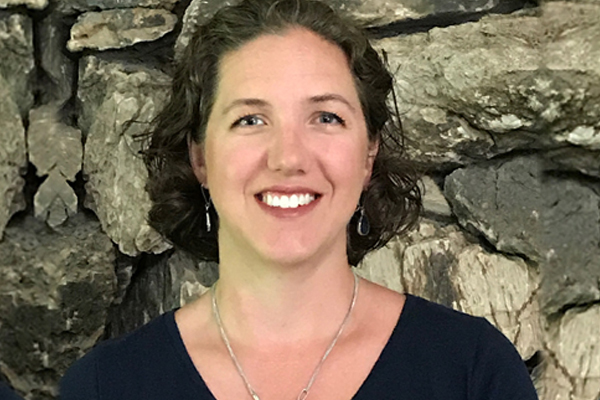Whether or not your desired candidates will be sworn into office, the one thing we all seem to agree on is that we’re exhausted and “over” this election! Accusatory ads, divisive campaign rhetoric and polarized partisan dynamics have put the worst of human behavior on display these last months, and we’re ready to move on.
For me, this election cycle has been enlightening and enriching thanks to two graduate classes I’m taking through the Nesti Center for Faith and Culture at Houston’s University of St. Thomas: Faith in the Dominant American Culture and The Art and Asceticism of Dialogue. They have helped me understand our nation’s historical religious context and how we can constructively engage with others amidst the present-day turmoil and angst.
My commitment moving forward, toward the “more perfect union” set forth in the Constitution’s Preamble, is to find ways to engage in conversations on these topics with fellow Catholics, including my children at home. If we want to recover civility and the ability to work together toward the common good, our political engagement needs to move beyond the ballot box.
Our local parishes are a perfect place to start. As I look around the pews in my local church on a Sunday, I don’t see any political rivals. I see friends and fellow parishioners whom I respect and trust. Even though a mix of Democrats, Republicans and independents, I see men and women voting from principled consciences more than platform policy or candidate fan clubs.
I believe most regular church-goers would identify as Catholics before political affiliation. Given our two-party system that vilifies the “others,” we’re schooled in seeing anyone with different perspectives as the enemy.
I propose as Catholics we renew a truly Catholic sense of “other” and put it into practice as Christ calls us to within the walls of our churches, and especially outside of our comfort zones.
We do this by building solid relationships with neighbors, colleagues, family and friends, caring for each other, sharing in joys and pains, enjoying pastimes and just sharing life together. That said, I cannot tell you how many times I hear that religion and politics are “off-limits” in conversation except when with like-minded people.
If our parishes are families of faith, and if our Catholic communities are comprised of a broad array of political identification – including those disaffiliated and disenchanted by the entire political process – what if we committed to make time and space for conversations as citizens that are rooted in our common Catholic faith?
The above photo is of the books assigned for my classes this fall, except one that I discovered listening to a Catholic news podcast. That one encapsulates most of my takeaways from this semester of learning.
“Citizens Yet Strangers: Living Authentically Catholic in a Divided America” by Kenneth Craycraft is the best attempt I’ve seen to bring together a solid understanding of the current political landscape with its historical religious context and how we, as “authentic Catholics” are called to engage as good citizens.
While he presents some heady topics assessing the “two dominant variations of American liberalism” playing out in our current political parties, Craycraft primarily focuses on “a truly Catholic understanding of the human person” and how its applied through the four pillars of Catholic social teaching – human dignity, the common good, subsidiarity and solidarity.
This is not a book that fits neatly into any ideological camp, which is exactly where I think we, as Catholics and American citizens, have the best opportunity to renew society. The author’s content issues challenges to both party’s social justice platforms, but in a way that leads to thoughtful discussions more than antagonistic arguments, starting with our immediate spheres of community.
Referencing the Catechism of the Catholic Church, Craycraft calls for civic friendship as an antidote for the political rivalry we are embroiled in.
Craycraft writes, “reducing civic friendship to political identification or activity tends to erode the former, as we are forced to pick sides.” He acknowledges that often leaves Catholics in a “partisan wilderness,” but presents his material in such a way that I have felt less like I’m politically homeless, and more like I can be at home in such a variety of settings.
That doesn’t mean that we will all agree. In fact, I’d propose that agreement is not even the goal. The goal is rather communion; and that doesn’t require sameness of mind as much as co-committed dispositions of the heart.
From my studies this semester, my new favorite definition of politics is: “learning to co-exist wisely.” Paraphrasing Craycraft’s conclusion, I would offer that as politically engaged Catholics, the most effective efforts we can make between now and the next election cycle is to bolster our understanding of Catholic social teaching and bring that into wise co-existence with the demands of American citizenship.
The most important question then becomes not how to be good citizens or even friends, but how we can be God’s faithful servants first? The best answers to that will not be whose name is on the next ballot, but how we have come to better understand and appreciate the needs and concerns of those we call neighbors, family and friends and work together towards serving each other as brothers and sisters in Christ.

Jenny Snarski
